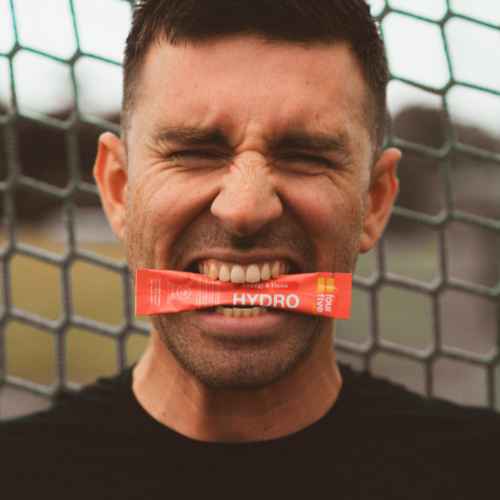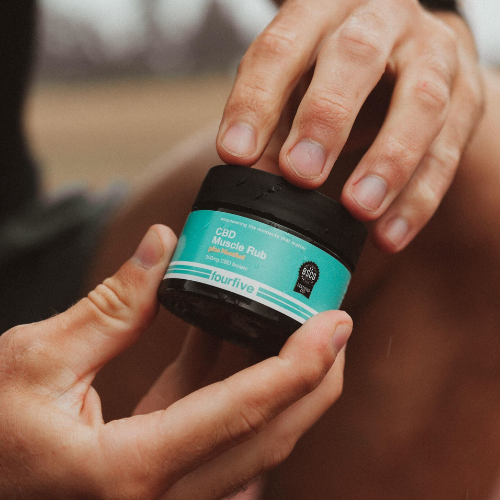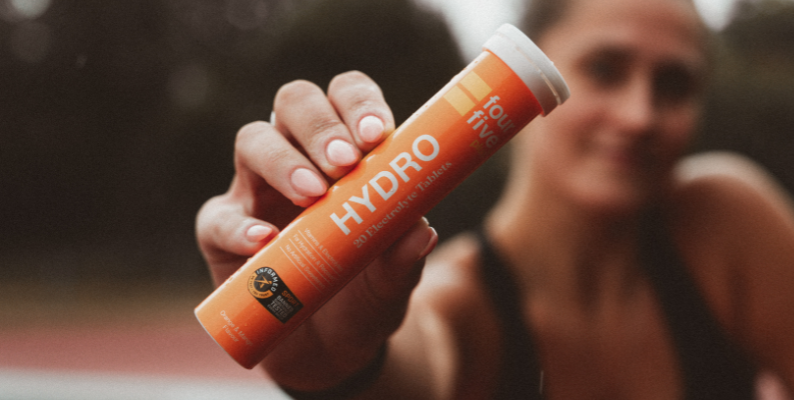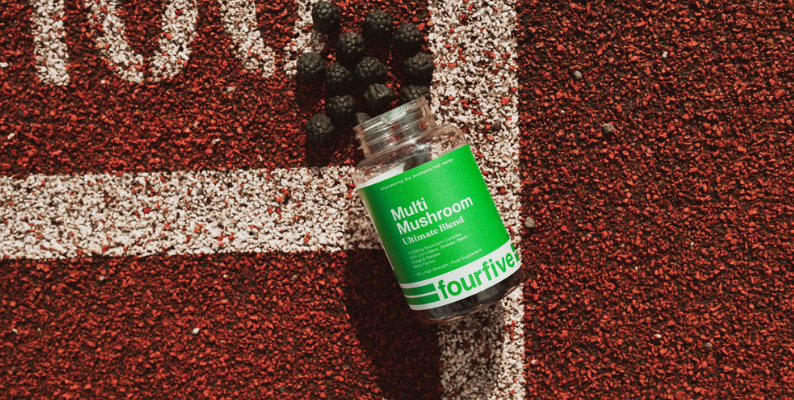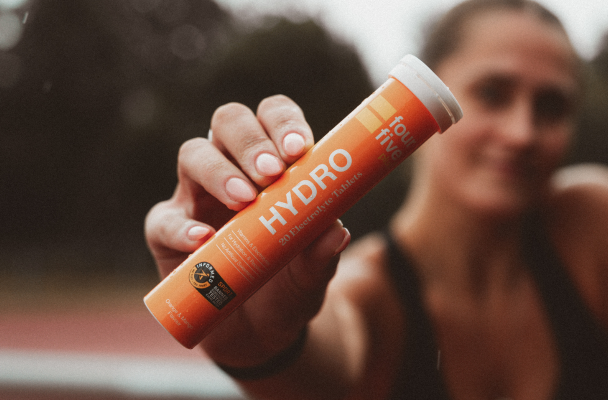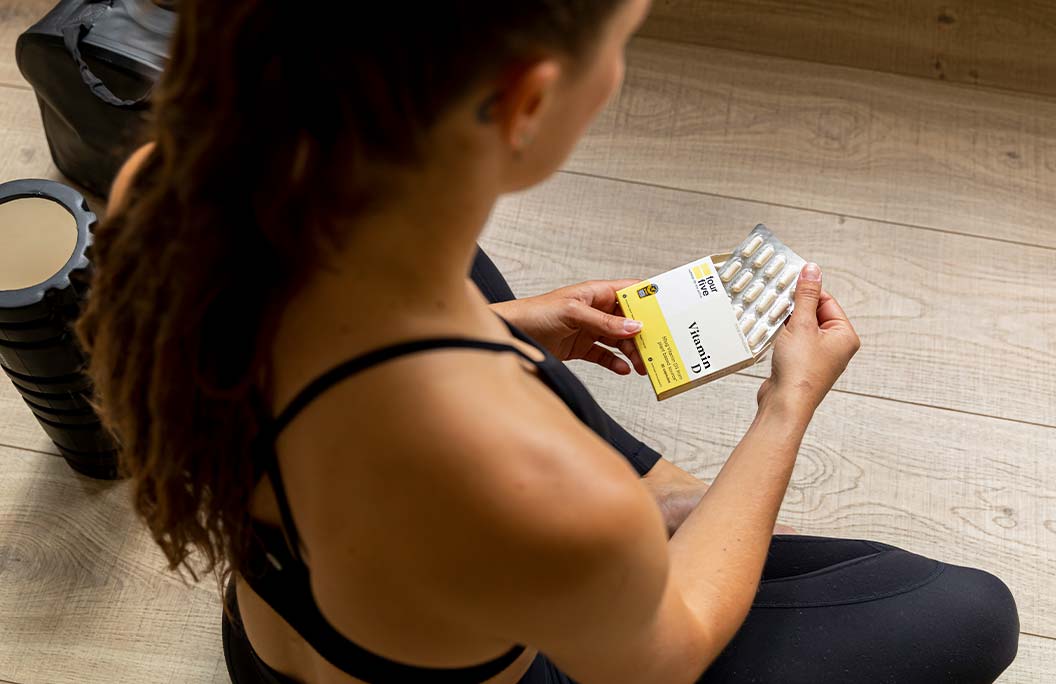Dr Elisabeth tells us how Vitamin D3 can benefit you, when to take it, how often to take it and a whole load of other questions about this important vitamin.
While you may be aware that Vitamin D, otherwise known as the sunshine vitamin, is a fairly common essential nutrient that we absorb through sunlight. What you might not know is that this means it’s completely different to other essential vitamins or nutrients. You may also not know that using the sun as your main source is not always sustainable as short days and dark UK winters don’t provide the adequate levels that you need to promote a healthy lifestyle.
What is Vitamin D?
Vitamin D is a fat-soluble vitamin mainly found in foods and can be stored in your body for a rather long time.
There are 2 main types that exist, these are:
- Vitamin D2, which is also known as ergocalciferol, which is mainly found in plants, mushrooms and some yeasts.
- Vitamin D3, otherwise known as cholecalciferol, is usually found in fatty meats (particularly fish) as well as egg yolks.
What Is The Difference Between Vitamin D and Vitamin D3?
There are two types of Vitamin D in the human body: Vitamin D2 and Vitamin D3. However, both D2 and D3 are called Vitamin D because there is no significant difference between the two types. Vitamin D3 is more effective at improving Vitamin D levels.
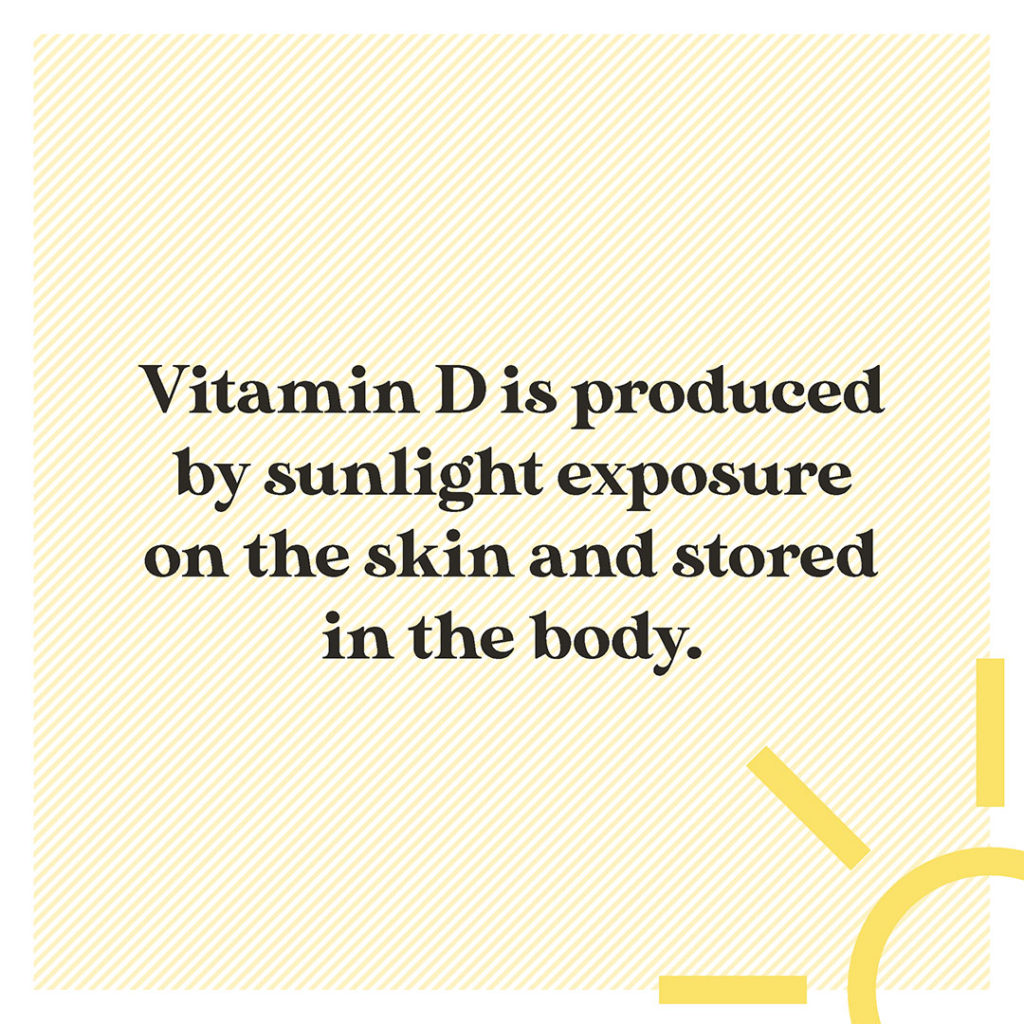
What Does Vitamin D Do For Your Body?
Vitamin D hosts a number of benefits and carries out a number of jobs once ingested. The main job for the body is to help regulate the amount of calcium and phosphate that your body has within it.
By helping to regulate both calcium and phosphate levels, it’s a great way to promote and sustain healthier bones, teeth and even muscles! What’s not to love about this Vitamin.
What Are The Benefits of Taking Vitamin D3?
Ensuring that you are not deficient and making a conscious effort to maintain a Vitamin D rich diet can host a number of benefits which can take a healthy and active lifestyle to the next level. That isn’t to say that taking our capsules won’t benefit those just starting out in their nutritional venture.
These benefits include:
- Contributes to normal function of the immune system.
- Sourced from vegan friendly Vita-algae D™.
- Contributes to normal absorption of calcium and phosphorus.
- Contributes to maintenance of normal bone, teeth and muscle function
How Can Vitamin D Offer Immune System support?
Vitamin D activates part of the immune system (white blood cells) that fights off bacteria and viruses. Research shows that adult Vitamin D activates the part of the immune system (white blood cells) that fights off bacteria and viruses. Research shows that adults with low Vitamin D levels are more likely to report having a recent cold, cough, or upper-respiratory infection.1
In light of 2020’s covid pandemic, the vitamin has taken centre stage with several scientific reports linking a deficiency to increased risk of coronavirus infection.2 The government now recommends that everyone supplements with at least 400iu Vitamin D daily to support their immune systems.3
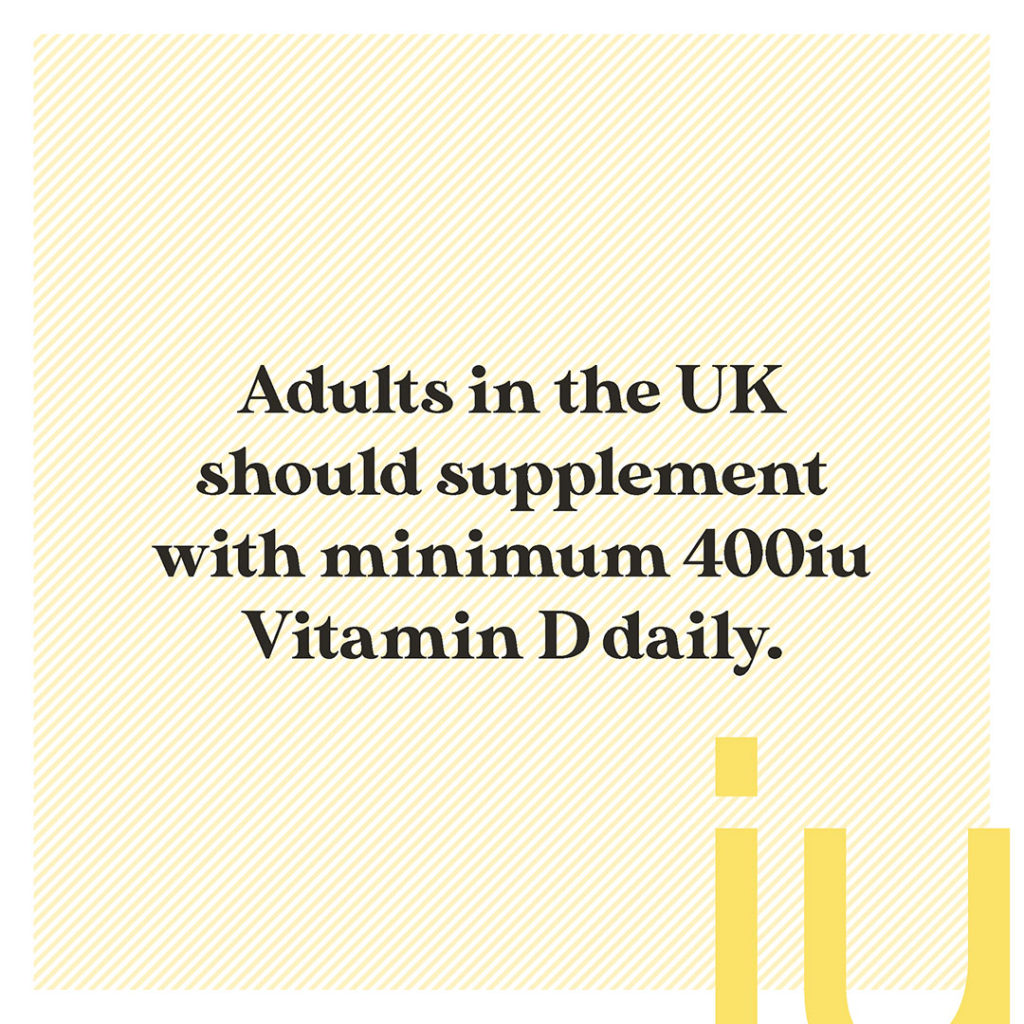
Bone Health
Vitamin D helps your body absorb and use calcium, which gives your bones strength and hardness. Studies show that a deficiency is linked to bone fractures and bone weakness (osteoporosis).4
Sport Recovery, Performance And The Sunshine Vitamin…
Research shows that Vitamin D deficiency can lead to muscle breakdown (catabolism) and cause muscle weakness, as well as impacts testosterone production, all of which could impair athletic performance, as well as recovery time.4
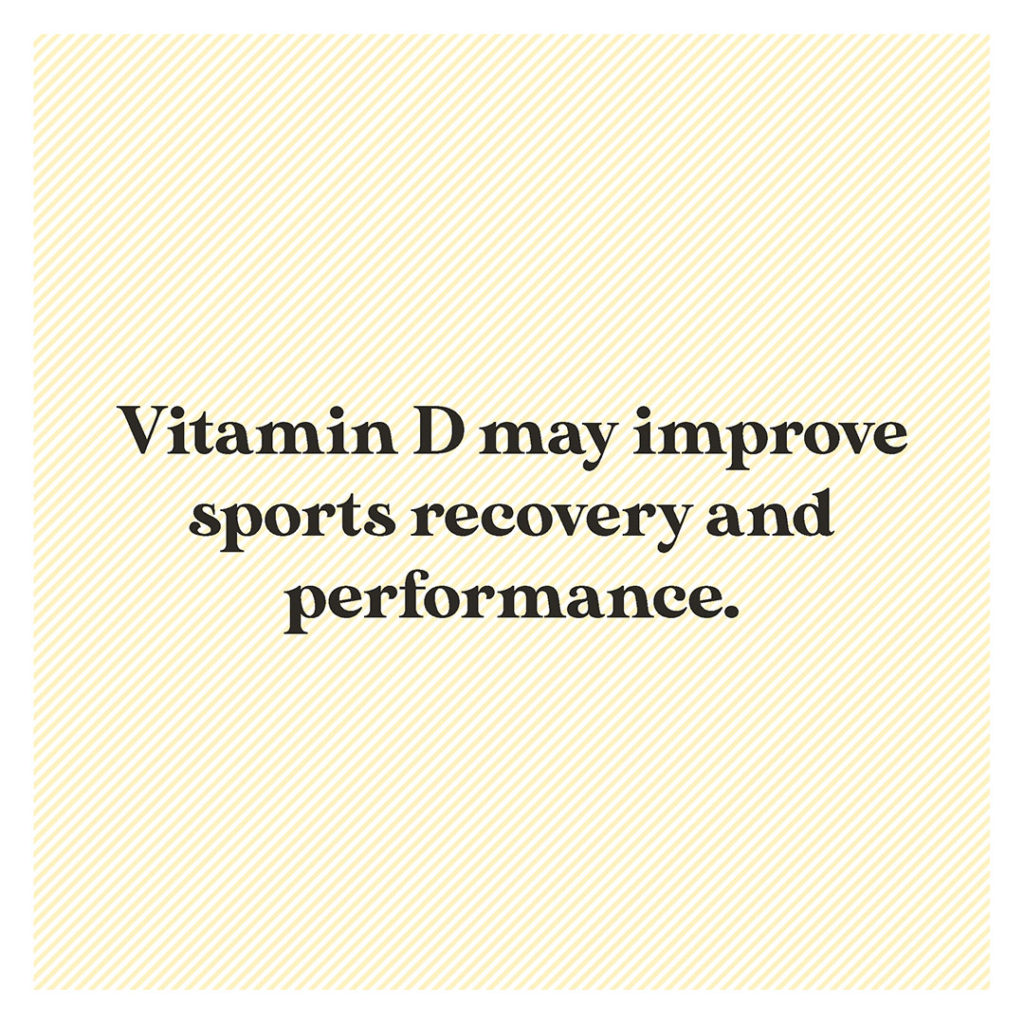
The Truth About Vitamin D Deficiency
The reality is that most people simply don’t get enough. For many of us living in more northern latitudes there just isn’t enough daily sunlight available year-round. Plus, the “safe sun” message and use of UV-blocking sunscreen to protect the skin and prevent accelerated ageing blocks most of the Vitamin D production.
If that wasn’t enough, as you get older, your body also reduces its natural production of Vitamin D: The average 70 year-old produces significantly less than a younger person.5
Skin colour also makes a difference: Dark skin produces less than fair-coloured skin with less melanin (skin pigment). A recent study of over 2000 athletes also found that 56% had inadequate Vitamin D levels.4
All these facts suggest that you probably need to look beyond the sun to get enough, especially if you’re older.
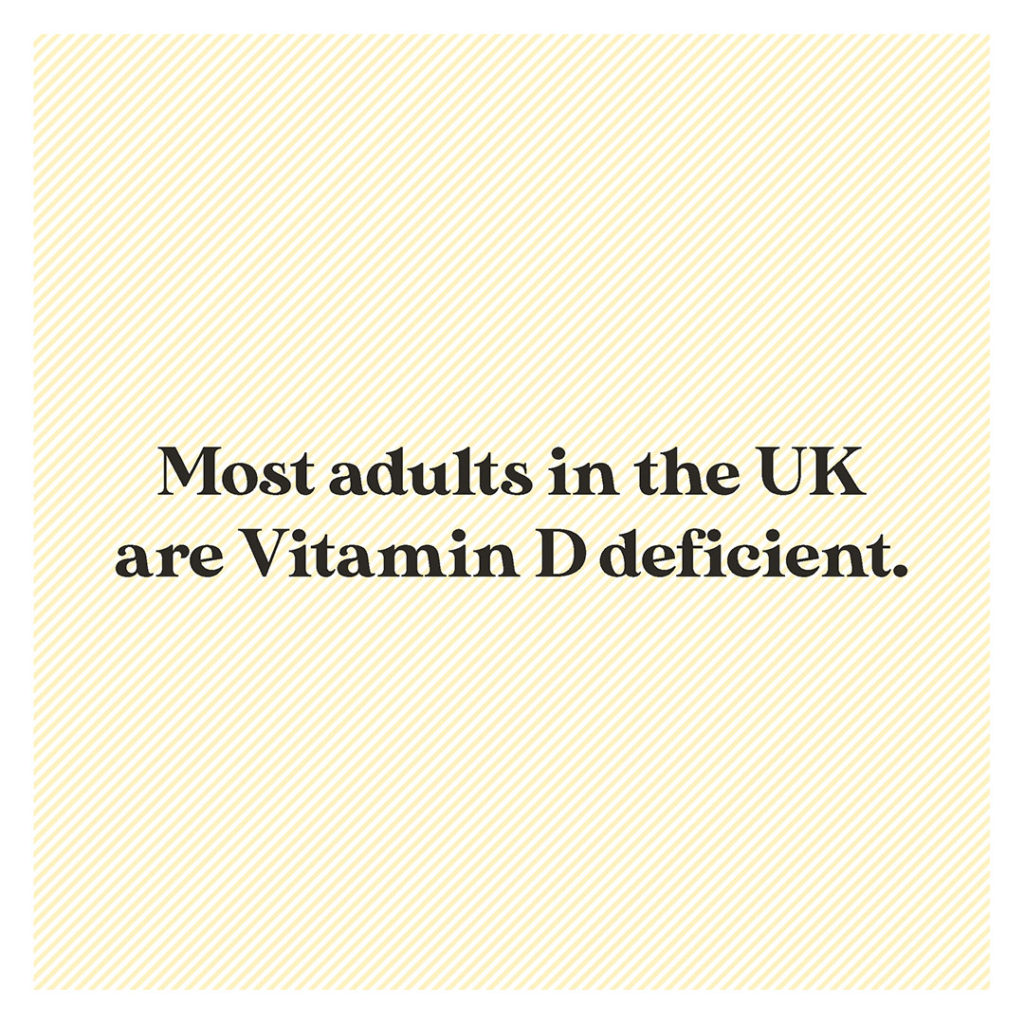
Can We Get Enough Vitamin D From Our Diets?
While some foods provide decent sources of it, most don’t have enough to meet your needs. Of course, you should still include Vitamin D rich foods, as they also contain other beneficial nutrients. Some of the best food sources of it include:
- Cooked wild salmon (100g): 360iu
- Cooked mackerel (100g): 345iu
- Sardines canned in oil, drained, (50g): 250iu
- One whole egg: 20iu
- Mushrooms (100g): 130-450iu depending on if they are grown in UV light
Vitamin D Supplements
The best way to get enough Vitamin D (while still saving your skin!) is through supplements. But they come in two forms, Vitamin D2 and Vitamin D3. Since the body produces Vitamin D3, it naturally prefers this form.
Typically, Vitamin D2 is sourced from plants (like mushrooms) while Vitamin D3 is sourced from animal-based sources (mainly lanolin derived from sheep’s wool). This means that many active Vitamin D3 supplements on the market are not suitable for vegans. However, there are now plant-based supplements available sourced from lichen, which are suitable for everyone whether they choose to eat animal products or not.
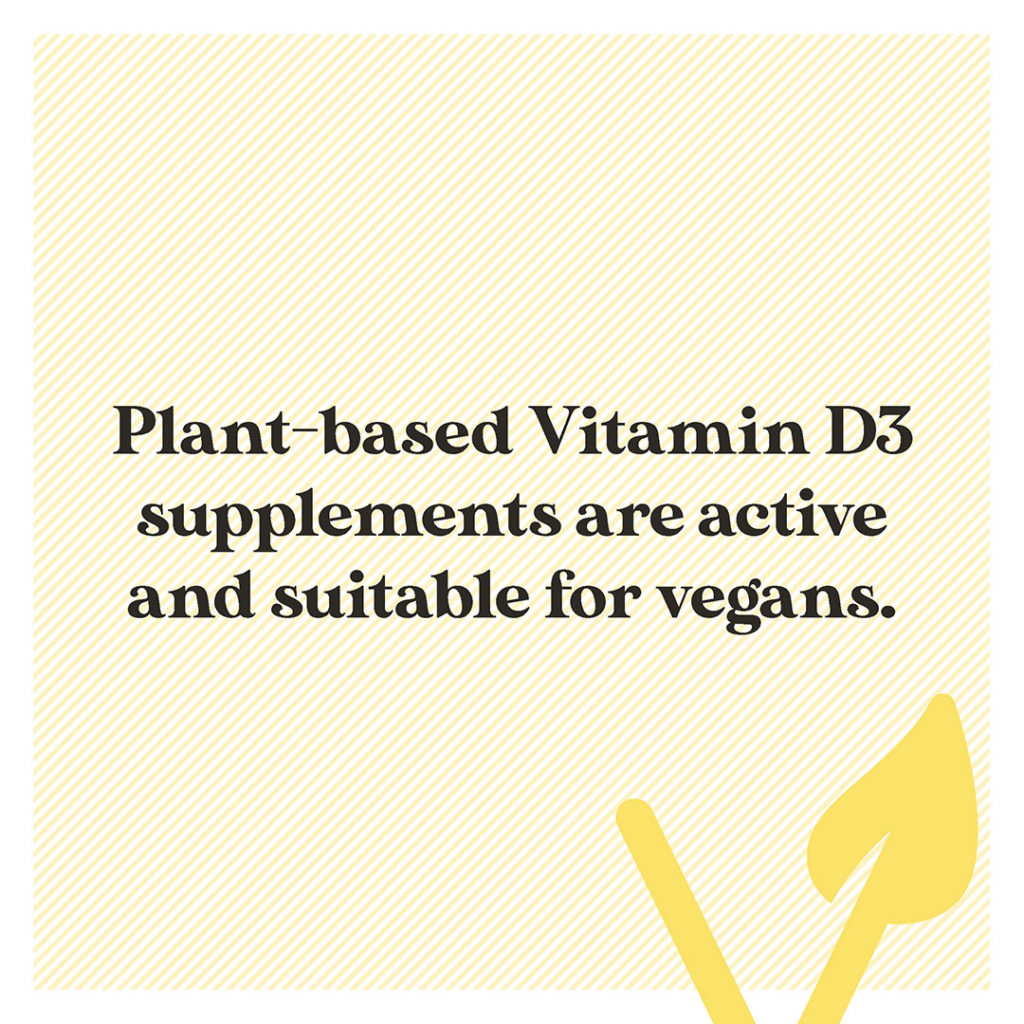
The recommended daily dose of Vitamin D is still being debated among medical professionals but it’s generally accepted that for adults 1000-4000iu daily prevents deficiencies and supports health.
Shop fourfive Vitamin D3 which contains 2000iu of Vitamin D3 per capsule. Our fast-absorbing capsules are also made with 100% natural ingredients, no preservatives or unnatural fillers.
1 https://www.bmj.com/content/356/bmj.i6583
2 http://dx.doi.org/10.1136/bmjnph-2020-000089
3 Scientific Advisory Committee on Nutrition Vitamin D and health, 2016. Available: https://assets.publishing.service.gov.uk/government/uploads/system/uploads/attachment_data/file/537616/SACN_Vitamin_D_and_Health_report.pdf
4 Dahlquist et al (2015) Plausible ergogenic effects of vitamin D on athletic performance and recovery. Journal of the International Society of Sports Nutrition 12: 33
5 https://www.ncbi.nlm.nih.gov/pmc/articles/PMC3782116/

